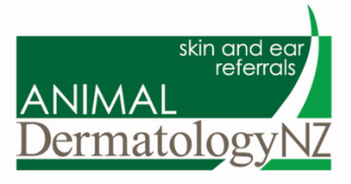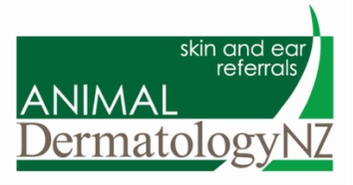FREQUENTLY ASKED QUESTIONS
WHY ANIMAL SKIN DISEASE?
As soon as you start practicing as a veterinarian, you notice how common skin problems are. 40% of what you see in general veterinary practice is skin related problems. Being on the surface means that usually the problems are easily seen, unlike some endocrine, neoplastic or immune-mediated conditions that have dermatologic manifestations. The skin problem may be the only symptom of a deeper, more serious internal or immune mediated problem, although the primary presenting complaint in dermatology is allergic disease(s)
The dermatology of animals is no easier than it is in people, and much of the art of dermatology is in managing conditions for which there is no “cure”. Most of the time, the animals can be helped to live healthy comfortable lives.
The dermatology of animals is no easier than it is in people, and much of the art of dermatology is in managing conditions for which there is no “cure”. Most of the time, the animals can be helped to live healthy comfortable lives.
WHY DOES MY PET NEED A DERMATOLOGIST?
While your general practitioner veterinarian can handle many aspects of your pet's care, just as in human medicine, sometimes there is a need for the attention of someone who works only in that field. If your pet has a complicated or difficult problem, your pet may need the care of a veterinary dermatologist. You can be assured that a veterinarian who knows when to refer you and your pet for more specialised diagnostic work or treatment is one that is caring and committed to ensuring your pet receives the highest standard of medical care.
While in some cases, your veterinarian may be able to simply consult with Dr Clear about your pet's care, in most cases it will be necessary to actually refer you and your pet to Animal Dermatology NZ for further diagnostics and treatment.
While in some cases, your veterinarian may be able to simply consult with Dr Clear about your pet's care, in most cases it will be necessary to actually refer you and your pet to Animal Dermatology NZ for further diagnostics and treatment.
WILL MY REGULAR VETERINARIAN STILL BE INVOLVED?
Absolutely! Dr. Clear will work together with your veterinarian as part of your pet's total veterinary health care team. Your general practitioner veterinarian will still continue to be responsible for all other aspects of your pet's care. After each visit, your referring vet and you will both receive copies of the exam notes, test results and treatment recommendations.
WHAT SPECIAL PROBLEMS DOES A VETERINARY DERMATOLOGIST TREAT?
Skin problems are some of the most common reasons owners bring their pet to the veterinarian. Most routine skin problems can be handled by your general practitioner veterinarian. Certain skin problems, however, can be difficult to diagnose and treat and the help of someone who deals only in dermatology may be required. These include skin problems associated with allergies, secondary or primary infections, endocrine (hormonal) diseases, diseases of the feet, footpads, or nails, and skin cancers. Recurrent ear infections are one of the most frustrating of all skin problems in companion animals. Dr. Clear has a special interest in ear disease and specialised equipment that has not previously been available in the Wellington area.
While it is important to realize that your pet's skin problems, especially those that have been developing over a period of time, often aren't solvable overnight, most can be made much more manageable with the help of someone who deals only in dermatology.
Most of the allergic disease that occurs in dogs and cats affects the skin. These allergies include reactions to foods, usually proteins, (food-induced atopic dermatitis), airborne and contact substances (environmentally induced atopic dermatitis), and fleas (flea bite dermatitis). Often there is more than one allergy present, and must all be identified and controlled for the best outcome. Controlling overcolonisation or infections secondary to the allergic disease is imperative, as well as addressing the compromised barrier function of allergic animals' skin. Allergies can be some of the most frustrating problems out there for you and your pet, so best to try and address these issues earlier rather than later.
While it is important to realize that your pet's skin problems, especially those that have been developing over a period of time, often aren't solvable overnight, most can be made much more manageable with the help of someone who deals only in dermatology.
Most of the allergic disease that occurs in dogs and cats affects the skin. These allergies include reactions to foods, usually proteins, (food-induced atopic dermatitis), airborne and contact substances (environmentally induced atopic dermatitis), and fleas (flea bite dermatitis). Often there is more than one allergy present, and must all be identified and controlled for the best outcome. Controlling overcolonisation or infections secondary to the allergic disease is imperative, as well as addressing the compromised barrier function of allergic animals' skin. Allergies can be some of the most frustrating problems out there for you and your pet, so best to try and address these issues earlier rather than later.
CAN MY ANIMAL’S SKIN PROBLEM BY “CURED” BY A VISIT TO ANIMAL DERMATOLOGY NZ?
In some cases, dermatologic problems can be “cured”. Secondary infections and overcolonisations can be "cured" but will continue to recur until the underlying cause is controlled. Ectoparasites like Sarcoptes, Demodex and fleas can be “cured”. Some endocrine problems like hypothyroidism or Cushing's can be treated so effectively that they are no longer an issue. On the other hand, some conditions like immune mediated disease and atopic dermatitis cannot be “cured”, but most often they can be controlled and managed effectively.

